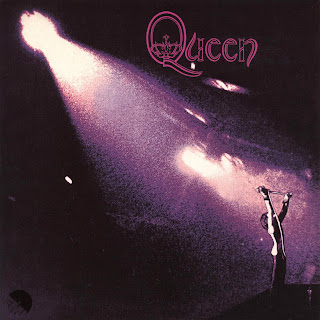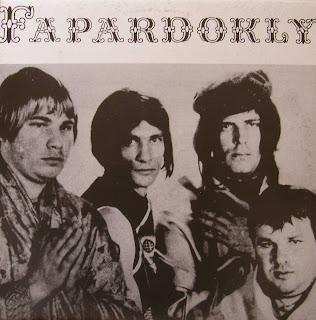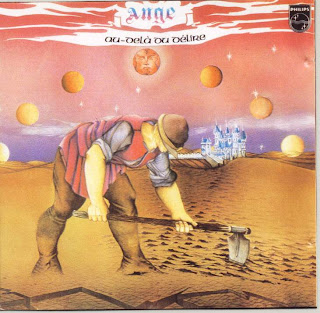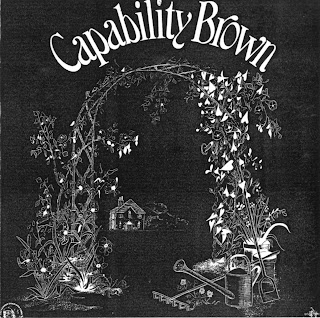 Janis Ian followed up her self-titled debut with the appropriately trippy For All The Seasons Of Your Mind (1968). Her no-nonsensical approach and bellicose lyrical style was poignantly defined by the widely banned single "Society's Child", which dealt with interracial relationships. This refreshing candour was also featured on a number of other edgy sides from her previous disc such as the teenage hooker blues that Ian titled "Pro-Girl" or the socially and sexually combative "Too Old To Go ‘Way Little Girl". On this disc, the singer/songwriter allows for a bit of psychedelic poetry to colour her commentaries. Again, she is accompanied by studio musicians whom Ian gives full and respective credit for their contributions -- a rarity for many solo artists in the late ‘60s. The band provide Ian with a variety of sonic pallets ranging from the sitar twang of the opening title track to the baroque orchestration that graces the instrumental introduction of "Insanity Comes Quietly To The Structured Mind". There are several introspective and more traditional folk tunes including the stark "There Are Times", which foreshadows Laura Nyro's "New York Tendaberry" and the scathing observational statement on the status of the aged on "Shady Acres". The quiet and personal "Evening Star" hearkens toward Ian's future jazz-inspired works. She maintains a delicate command of the stirring and moody piano inflections that trickle all around her vocals in a sort of improvisational dance. The track also has the maturity of a pop music standard from the likes of Gershwin or Cahn. Ian slightly bends the piano voicings to replicate her own soulful intonations. One of the hidden gems on the LP is the more contemporary minor chord masterpiece "Bahimsa". The performance evokes a distinct European flavour that might suggest the Incredible String Band or Pentangle. These more sombre and developed compositions make for somewhat schizophrenic bedfellows beside the funky electric soul of the derisive "Honey D'ya Think" or the awkward coming of age brass band waltz "And I Did Ma". For All The Seasons Of Your Mind is included on Society's Child: The Verve Recordings (1995) -- a mini box set gathering Ian's first four albums: Society's Child (1967), The Secret Life Of J. Eddy Fink (1968) and Who Really Cares (1969) -- as well as this title -- onto two CDs. AllMusic.
Janis Ian followed up her self-titled debut with the appropriately trippy For All The Seasons Of Your Mind (1968). Her no-nonsensical approach and bellicose lyrical style was poignantly defined by the widely banned single "Society's Child", which dealt with interracial relationships. This refreshing candour was also featured on a number of other edgy sides from her previous disc such as the teenage hooker blues that Ian titled "Pro-Girl" or the socially and sexually combative "Too Old To Go ‘Way Little Girl". On this disc, the singer/songwriter allows for a bit of psychedelic poetry to colour her commentaries. Again, she is accompanied by studio musicians whom Ian gives full and respective credit for their contributions -- a rarity for many solo artists in the late ‘60s. The band provide Ian with a variety of sonic pallets ranging from the sitar twang of the opening title track to the baroque orchestration that graces the instrumental introduction of "Insanity Comes Quietly To The Structured Mind". There are several introspective and more traditional folk tunes including the stark "There Are Times", which foreshadows Laura Nyro's "New York Tendaberry" and the scathing observational statement on the status of the aged on "Shady Acres". The quiet and personal "Evening Star" hearkens toward Ian's future jazz-inspired works. She maintains a delicate command of the stirring and moody piano inflections that trickle all around her vocals in a sort of improvisational dance. The track also has the maturity of a pop music standard from the likes of Gershwin or Cahn. Ian slightly bends the piano voicings to replicate her own soulful intonations. One of the hidden gems on the LP is the more contemporary minor chord masterpiece "Bahimsa". The performance evokes a distinct European flavour that might suggest the Incredible String Band or Pentangle. These more sombre and developed compositions make for somewhat schizophrenic bedfellows beside the funky electric soul of the derisive "Honey D'ya Think" or the awkward coming of age brass band waltz "And I Did Ma". For All The Seasons Of Your Mind is included on Society's Child: The Verve Recordings (1995) -- a mini box set gathering Ian's first four albums: Society's Child (1967), The Secret Life Of J. Eddy Fink (1968) and Who Really Cares (1969) -- as well as this title -- onto two CDs. AllMusic.listen here
FR
 / USA
/ USA / UK
/ UK

 /
/  /
/ 

 /
/  /
/ 

 /
/  /
/ 

 /
/  /
/ 

 /
/  /
/ 

 /
/ 

 /
/  /
/ 

 /
/  /
/ 

 /
/  /
/ 

 /
/  /
/ 

 /
/  /
/ 

 /
/  /
/ 
